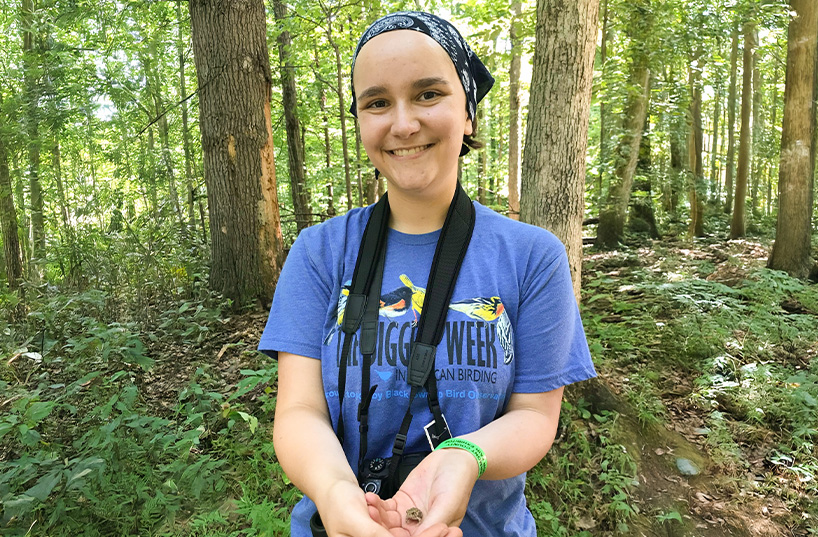Perspective written by OVCN graduate Mary Klene, who enjoys beekeeping, kayaking, and is currently a writer for Mother Earth Love by Horizons—a publishing group that emphasizes environmental education. This article is also featured in the November 1, 2024, issue of The Ripple.
Click here to learn more about the Ohio Certified Volunteer Naturalist program.
As people, we have always used titles to classify each other. These titles share our interests, careers, and lifestyles, becoming a large part of who one is. One may be known as a doctor, attorney of law, or educator. These titles make one's life feel more full, giving those a more personal connection and reflection as to who they are.
In today's community, the title of a Naturalist has become a growing honor. One may choose to receive a degree in biology or natural sciences, to work as a naturalist at a state park or agency. One may consider themselves a naturalist because of personal practices, such as habits of recycling and sustainable conduct, while others consider themselves naturalists, simply because they like the outdoors.
With a variety of meanings, which definition holds the leading interpretation? A few winters ago, my naturalist journey began with the Cincinnati Nature Center, through participating in the Ohio Certified Naturalist program. This program, designed to increase one's knowledge of the natural world, opened my mind to a realm of wonder.
Throughout the class, students were taught environmental identification and science skills, while also exploring interpretation and outreach skills. Because the class also emphasized communication, to become officially certified, volunteer service was encouraged.
So, what does it mean to become an Ohio Certified Volunteer Naturalist?
I found from my experiences with the class, that many of the participants had a background in education or environmental studies. While much of the information was a review, new guests presented specialized topics each week, going so deep into details, that one felt like an expert by the time the class ended. This allowed the participants to explore their interest in the topic and encouraged expertise in certain areas. When one becomes educated in a specific area, one experiences a feeling of pride, knowing that one can comprehend challenging data, facts, and theories.
Diving deeper into my personal experiences, I have found that being a naturalist has allowed me to communicate and uncover new facets of humankind's interaction with nature. When volunteering, I was able to see how intrigued, as well as knowledgeable the attendees are. While many guests were new to outdoor discovery, many already had a deep understanding of the topic and ideas being presented.
Hosted through the Cincinnati Nature Center, my class was one of the only classes to be held virtually through Zoom. Coming back from Covid, it was hard to comfortably meet in person, and many felt conflicted. When the Cincinnati Nature Center offered the option of online learning, many jumped to the computers; and not just those in Cincinnati. This “COVID class” consisted of individuals from across the state.
The classes consisted of different topics or specializations each week, and each lesson was presented by a different expert. Herpetologists, ornithologists, and other experienced researchers joined the class to share personal experiences, insight, and knowledge relating to Ohio’s ecosystems and geography. By participating in online classes, the students were able to connect with a variety of speakers.












